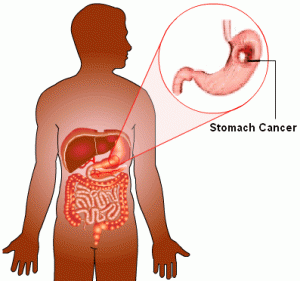| What is the Stomach cancer? |
Stomach cancer is known as a gastric cancer. It can form in the tissue of the main stomach body or the gastroesophageal junction where the stomach joins the oesophagus. Early stage stomach cancer refers to cancer that is confined to the stomach tissue. However, it can spread to other parts of the body, referred to as a metastatic stomach cancer.

| What are the risk factors for stomach cancer? |
- Gender
Stomach cancer is more common in men than in women.
- Age
A person over the age of 50 is a sharp increase in stomach cancer. Most people diagnosed with stomach cancer are between their late 60s and 80s.
- Ethnicity
The ethnic that’s more common in Hispanic American, African American, and asian/pacific islanders than it is non Hispanic whites.
- Helicobacter pylori infection
Infection with helicobacter pylori (H pylori) bacteria seems to be a major cause of stomach cancer, especially cancer in the lower (distal) part of the stomach. Long-term infection of the stomach with this germ may lead to inflammation (chronic atrophic gastritis) and pre-cancerous changes of the inner lining of the stomach.
- Diet
Diets which contain a large amount of smoked foods, salted fish and meat, and pickled vegetables are increase risk of stomach cancer. A nitrate is a substance commonly found in cured meats. They can be converted by certain bacteria, such as H pylori, into compounds that have been shown to cause stomach cancer in lab animals.
- Tobacco use
Most of the rate of stomach cancer is about doubled in smoker. Smoking increased stomach cancer risk, particularly for cancers of the upper portion of the stomach near the esophagus.
- Previous stomach surgery
The previous stomach surgery is a one of the risk factor of stomach cancer. It likely to develop in people who have had part of their stomach removed to treat non-cancerous disease such as ulcers. This might be because the stomach makes less acid, which allows more nitrate-producing bacteria to be present. Reflux of bile from the small intestine into the stomach after surgery might also add to the increased risk. These cancers typically develop many years after the surgery.
- Type “A” blood
People with type ‘A’ blood have a high risk of getting stomach cancer. Blood groups refer to the certain substances that are normally present on the surface of red blood cells and some other types of cells. Group of blood is important to matching blood for transfusion.
- A family history of stomach cancer
People that having any relatives(parent, siblings, or children) who have had stomach cancer are more likely to develop this disease.
| What types of stomach cancer? |
The cells that form the tumor determine the type of stomach cancer. Stomach cancer has four types that are:
- Adenocarcinoma.
This is the stomach cancer that begins in the glandular cells. Glandular cells are a line the inside of the stomach secretes a protective layer of mucus to shield the lining of the stomach from the acidic digestive juice. Majority of stomach cancer is a adenocarcinoma.
- Lymphoma
This is the stomach cancer that begins in immune system cells. The walls of the stomach contain a small number of immune system cells that can develop cancer. This type of stomach cancer is rare.
- Gastrointestinal stromal tumor (GIST)
This is the stomach cancer that begins in nervous system tissue. GIST begins in specific nervous system cells found in stomach. This type of stomach cancer is rare.
- Carcinoid tumor
This is the stomach cancer that begins in hormone-producing cells. Hormone producing cells can develop carcinoid cancer.
 |
Search for Best Treatment Stomach Cancer in Google search here |
